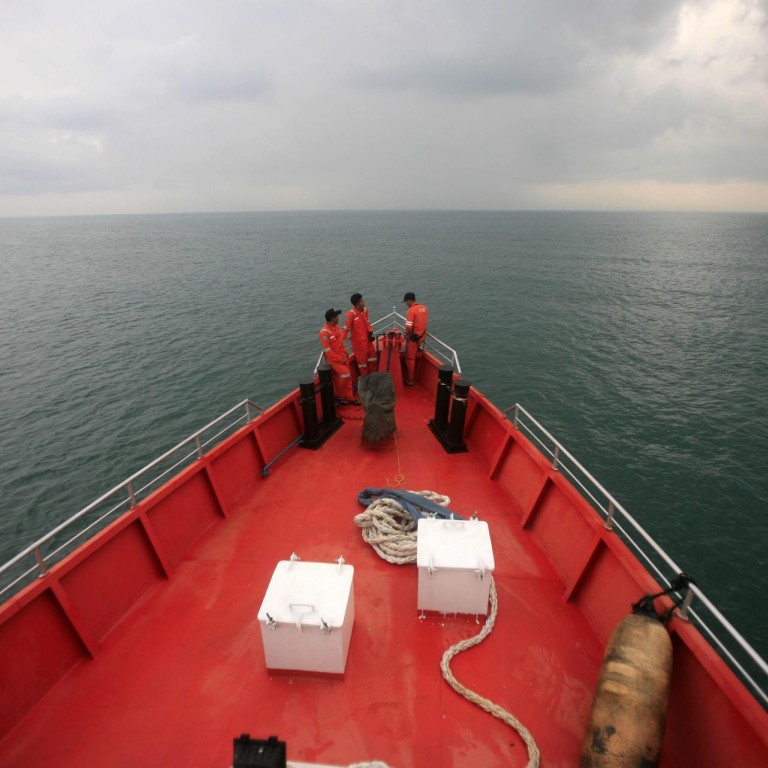
'Deliberate act' took missing plane off course, says Malaysia PM Najib Razak
Malaysian PM stops short of blaming hijacking, as search refocused on two specific flight corridors
The mystery of missing Malaysia Airlines flight 370 has taken a dramatic new twist, with the country's prime minister, Najib Razak, confirming the disappearance of the Boeing 777 jet was the result of a "deliberate act".
Investigators now believe that someone on board the plane deliberately shut off its communications and tracking systems, turned the plane around and flew for nearly seven hours after it vanished, Najib said yesterday.
As the unprecedented search for the plane and its 239 passengers and crew enters its second week, Najib said the hunt for wreckage around the scheduled flight path to the east of Malaysia was being called off.
While he stopped short of calling it a hijacking, Najib said: "The Malaysian authorities have refocused their investigation into the crew and passengers on board."
Of the 227 passengers, 154 are from China.
Reports from Malaysia said the homes of those on the flight deck of the missing plane - including Captain Zaharie Ahmad Shah, 53 - were raided shortly after the prime minister spoke at a press conference in Kuala Lumpur.
"Despite media reports that the plane was hijacked, we are still investigating all possibilities as to what caused MH370 to deviate from its original flight path," Najib said.
The plane's last satellite contact - at 8.11am on March 8 - revealed it flew more than seven hours after dropping off civilian radar. Two flight corridors are now the focus of the search - one from northern Thailand to Kazakhstan and Turkmenistan and a southern corridor from Indonesia to the southern Indian Ocean.
According to satellite data, if the plane headed north, it would have flown over sensitive and disputed border regions in Asia. If it went south, it would have crossed parts of the Indian Ocean several thousand metres deep.
Najib said new satellite information had had a significant impact on "the nature and scope of the investigation ... the search for MH370 has entered a new phase".
Najib called on "relevant foreign embassies" to help share sensitive military data to pinpoint the aircraft.
Investigators now know that the missing airliner's communications were deliberately disabled and that it turned back from its flight path to Beijing and flew across Malaysia.

Search teams have yet to find any wreckage despite trawling thousands of square kilometres of open water.
According to a report in The New York Times, citing an unnamed American official, radar readings indicated the plane's altitude changed several times soon after it disappeared from civilian radar screens.
The Boeing 777-200 Extended Range climbed to 45,000 feet - above the approved altitude limit for such aircraft - then descended unevenly to 23,000 feet on the western fringe of the Malay Peninsula, below cruising altitude, before climbing to 29,500 feet over the Strait of Malacca.
Families of missing Chinese passengers said they hope they are still alive but are angry at the handling of the crisis.
Wen Wancheng from Shandong , whose son is a passenger on board, told the Sunday Morning Post: "I think this is a conspiracy. Malaysian authorities didn't treat us honestly … The time they gave wasn't right and the location was not correct.
"I feel deeply upset for what [the Malaysian government] have done. They should be more honest to us and other countries that made tremendous efforts to rescue [those on board]."

Malaysia Airlines representatives in Beijing told passengers' families it could not answer questions as a criminal investigation was under way.
China's foreign ministry said it paid "very close attention" to the latest development.
Pan Zhiping , director of the Institute of Central Asia at the Xinjiang Academy of Social Sciences, said: "It's likely that the plane was hijacked, or subject to some kind of attack."
But he said it was unlikely the incident was linked to Uygurs, a Turkic minority in Xinjiang. Some Uygurs are known to have joined the separatist East Turkestan Islamic Movement (ETIM).
"The attacks carried out inside China do not involve the use of high technology," he said.
"I doubt if the ETIM is capable of hijacking a Boeing 777 plane, and hiding it in an area that cannot be found."


